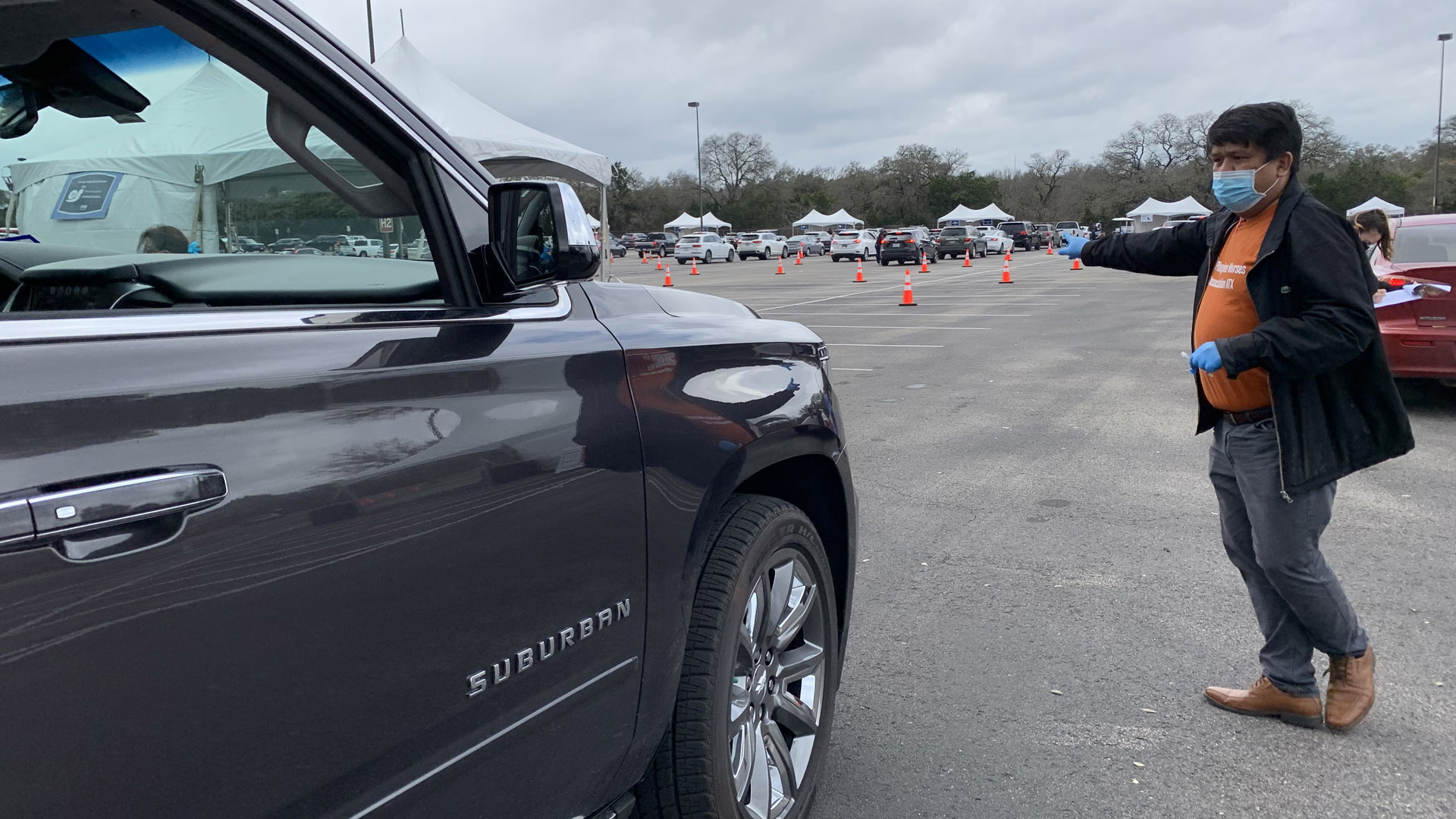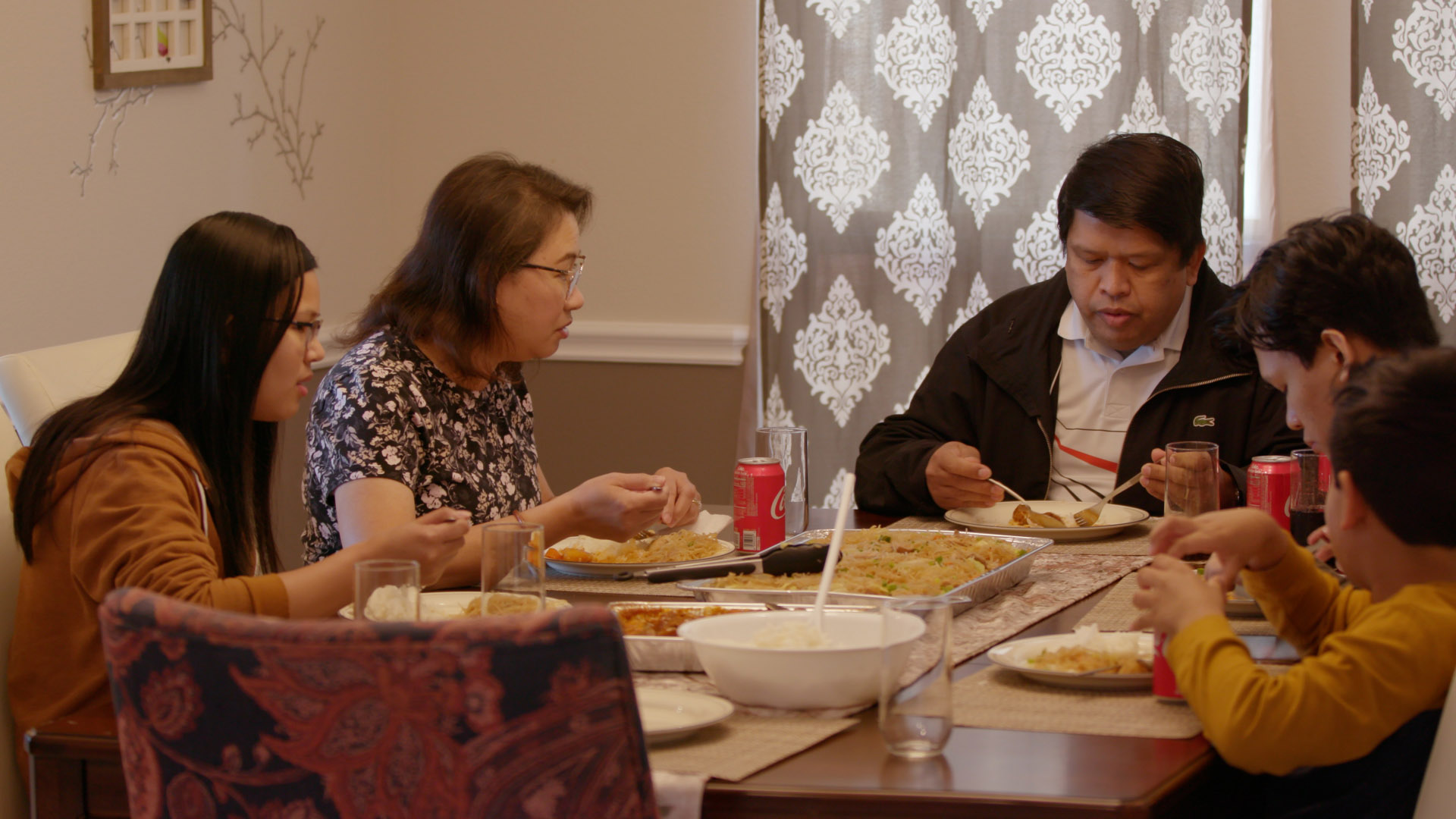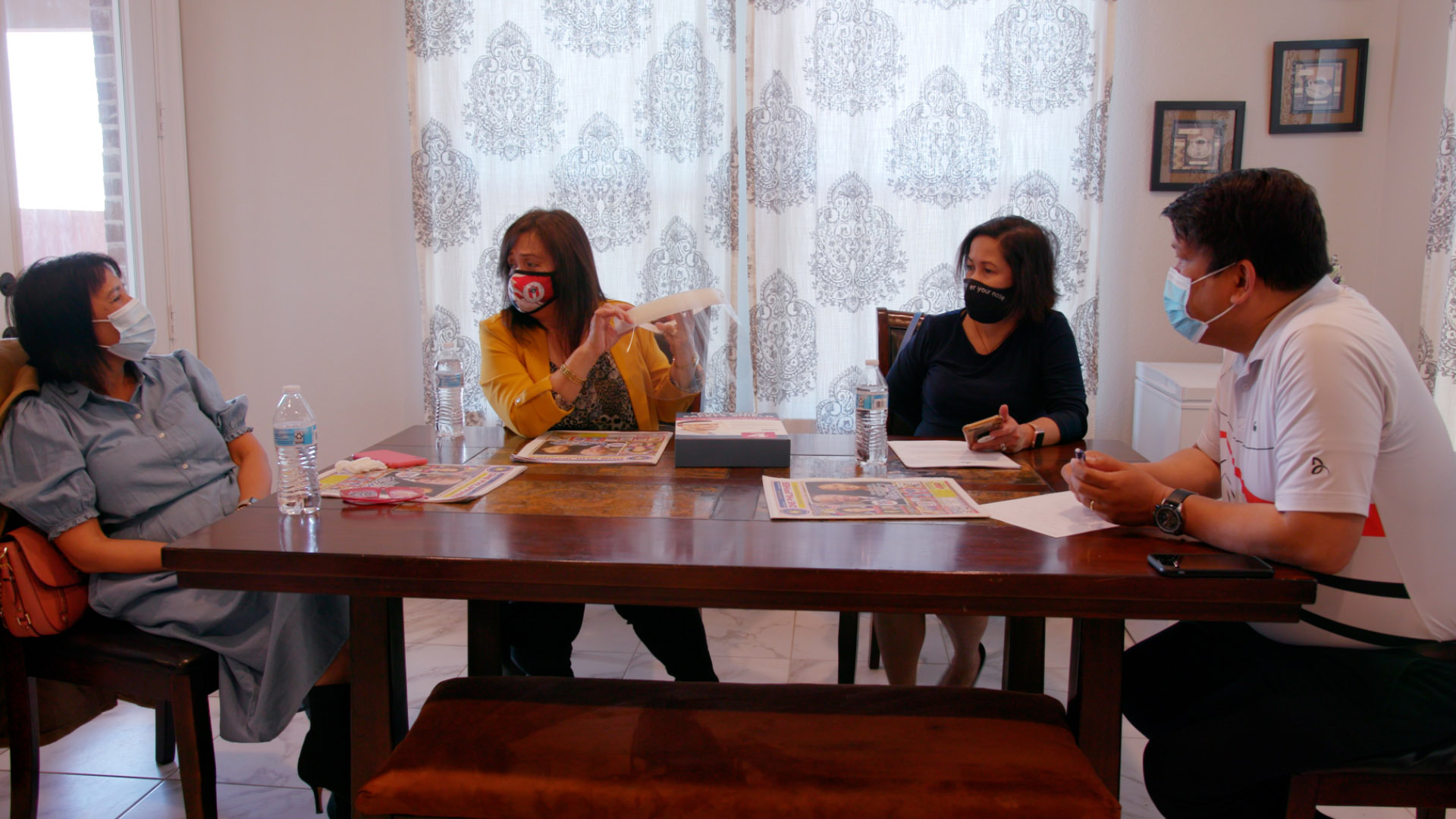The Care That Breaks The Ceiling
It’s a sunny afternoon in suburban Georgetown. Romeo Albornoz is in his scrubs and getting ready to head into work at Cornerstone Specialty Hospitals Round Rock.
“I remember when I was in high school a lot of my main friends wanted to be an engineer or an accountant. I'm the only person who wants to be a nurse,” Albornoz says. “I like science. I like helping people. So that combination would be great for me to pursue my dream as a nurse.”
Albornoz is currently an ICU nurse. He and other Filipino Americans make up about 4% of total nurses in the U.S., making them one of the largest ethnic groups in the profession. While Albornoz doesn’t care for Covid-19 patients, a national report shows Filipino American nurses made up 31.5% of Covid-19 related nurse deaths.
Romeo Albornoz (right) directs vehicles while he volunteers at the Kelly Reeves Athletic Complex, a mass vaccination site in Williamson County, on March 9th, 2021. Albornoz and members of his chapter of the Philippine Nurses Association of America have been volunteering at different Covid-19 vaccinations sites on their days off.
“There's a big disproportion and numbers won't lie. That's the biggest part of that,” Albornoz says. “It could be because a lot of Filipino nurses are in the front lines, like working in the ICU or ER.”
Albornoz doesn’t work on the frontlines of the pandemic, but it took years for him to get where he is today. Albornoz immigrated to the U.S. in 2004, after years of working in different nursing positions in the Philippines. He worked at Baptist Health in Birmingham, Alabama and after two years moved to Lubbock, Texas where he applied for an assistant director position in a nursing unit at a hospital.
“They hired a different person, which doesn't have the clinical experience that we have and the education,” Albornoz says. “Even the panel interviewer, he said, ‘Romeo, I was surprised that you were not shortlisted.’”
Albornoz believes he was passed up for the job because of stereotypes about Filipino Americans.
Romeo Albornoz (center) eats lunch with his youngest son, David Albornoz (lower right), oldest son, Daryl Albornoz (upper right), his wife, Mitzi Gace Albornoz (upper left) and daughter, Dasha Albornoz at their home in Georgetown, TX on March 2nd, 2021.
“Culturally, they don't see Filipino American nurses as being assertive, to assert their role and to make the right decision,” Albornoz says. “They see the Filipino nurses as good bedside nurses, which is true … [but] when it comes to making other decisions to run the unit or to run the hospital, you're not good for that, or that's not for you.”
It’s a trend supported by history. The U.S. began recruiting nurses from the Philippines after the end of World War II. Recruitment rates ramped up in the 1960s when it became more challenging to fill positions with high vacancy rates due to a white flight from certain positions. Catherine Ceniza Choy is a professor of comparative ethnic studies at the University of California, Berkeley and author of, “Empire of Care: Nursing and Migration in Filipino American History” where she chronicles much of this history.
“When we see a higher concentration of Filipino American nurses in acute and long term in-patient care compared to white American nurses, we need to ask as researchers, to what extent is this a choice?” Choy says. “And to what extent is this an outcome of the history of the recruitment of Filipino nurses that places them in these roles? Because they are risky roles.”
Choy says that this history of Filipino American nurses occupying these roles exposed them to more Covid-19 patients.
“This would include things like ICUs, emergency rooms and direct bedside care as well as direct care at nursing homes,” Choy says.
Jennifer Nazareno is an assistant professor at the School of Public Health at Brown University and co-founder of the Philippine Health Initiative for Research, Service, and Training. She conducted a national study that shows Philippines-trained registered nurses are disproportionately working in higher risk jobs.
“They are disproportionately more likely to be exposed to Covid because of the acuity of patients that they are caring for,” Nazareno says. “As opposed to white U.S.-trained nurses where they are most likely to be in outpatient settings.”
Karen Michelle Cendana is the vice president of the South Central region for the Philippine Nurses Association of America, PNAA, and is part of their PNAA Covid-19 Task Force. She also works as a recovery room nurse in the Rio Grande Valley and saw this impact firsthand.
“To tell you frankly, this was just like war. … You don’t know how many people are gonna die,” Cendana says.
Romeo Albornoz (far right) meets with members of the Philippine Nurses Association Austin, TX including Malou VonOhlen (right center), Aurora Hillin (left center) and Eden Stowers (far left) at his home in Georgetown, TX on March 2nd, 2021. Albornoz co-founded the group in 2019 to help Filipino American nurses with career advancement.
The PNAA Covid-19 Task Force has been investigating why so many Filipino American nurses were being disproportionately affected. While the proximity to Covid-19 patients is a key factor, the lack of PPE and knowledge about how the virus was transmitted ultimately led to many nurse deaths early on in the pandemic.
“At first they don’t really know the mode of transmission, so they just say to wear a surgical mask,” Cendana says. “Now, we are mandated to wear N95.”
That’s why in 2019 Albornoz created a local chapter of the Philippine Nurses Association of America . He hopes other nurses like him won’t go through the same struggle.
“I share my story,” Albornoz says. “And advocate for their rights so that Filipino or other minority nurses will have a voice, so they can be heard, so they can be considered when making decisions.”
Community journalism doesn’t happen without community support.
Got story ideas, advice on how we can improve our reporting or just want to know more about what we do? Reach out to us at news@klru.org.
And if you value this type of reporting, then please consider making a donation to Austin PBS. Your gift makes the quality journalism done by the Decibel team possible. Thank you for your contribution.
More in Health:
See all Health posts








Contact Us
Email us at news@klru.org